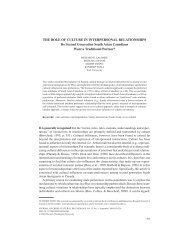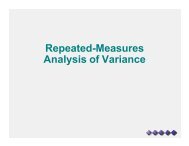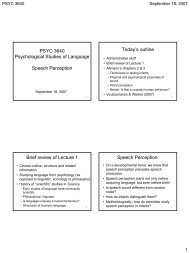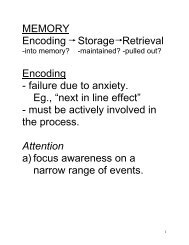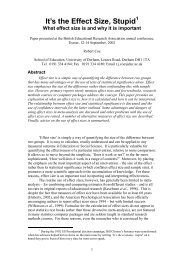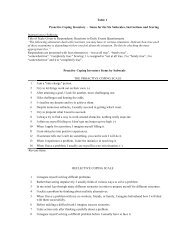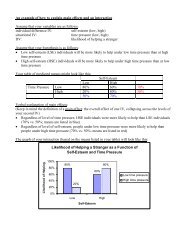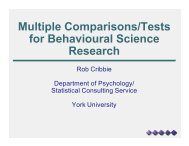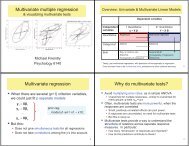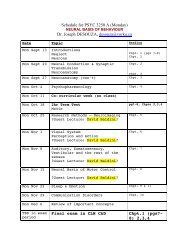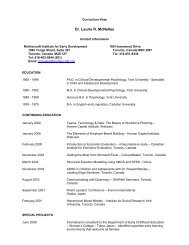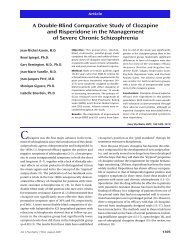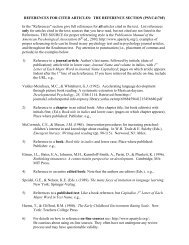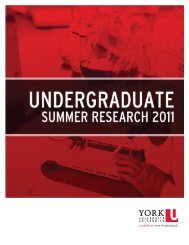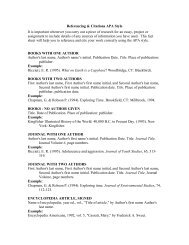The Drama of the Gifted Child (The Search for the True Self)
The Drama of the Gifted Child (The Search for the True Self)
The Drama of the Gifted Child (The Search for the True Self)
Create successful ePaper yourself
Turn your PDF publications into a flip-book with our unique Google optimized e-Paper software.
through experience, not merely corrective experience as an<br />
adult but, above all, through a reliving <strong>of</strong> his early fear <strong>of</strong><br />
his beloved mo<strong>the</strong>r's contempt and his subsequent feelings<br />
<strong>of</strong> indignation and sadness. Mere words, however skilled<br />
<strong>the</strong> interpretation, will leave <strong>the</strong> split from which he suffers<br />
unchanged or even deepened.<br />
One can <strong>the</strong>re<strong>for</strong>e hardly free a patient from <strong>the</strong> cruelty<br />
<strong>of</strong> his introjects by showing him how <strong>the</strong> absurdity, exploitation,<br />
and perversity <strong>of</strong> society causes our neuroses and<br />
perversions, however true this may be. Freud's patient Dora<br />
became sick because <strong>of</strong> society's sexual hypocrisy, which<br />
she was unable to see through. Things we can see through<br />
do not make us sick; <strong>the</strong>y may arouse our indignation, anger,<br />
sadness, or feelings <strong>of</strong> impotence. What makes us sick<br />
are those things we cannot see through, society's constraints<br />
that we have absorbed through our mo<strong>the</strong>r's eyes<br />
—eyes and an attitude from which no reading or learning can<br />
free us. To put it ano<strong>the</strong>r way: our patients are intelligent,<br />
<strong>the</strong>y read in newspapers and books about <strong>the</strong> absurdity<br />
<strong>of</strong> <strong>the</strong> armaments race, about exploitation through capitalism,<br />
diplomatic insincerity, <strong>the</strong> arrogance and manipulation<br />
<strong>of</strong> power, submission <strong>of</strong> <strong>the</strong> weak and <strong>the</strong> impotence<br />
<strong>of</strong> individuals—and <strong>the</strong>y have thought about <strong>the</strong>se subjects.<br />
What <strong>the</strong>y do not see, because <strong>the</strong>y cannot see it, is <strong>the</strong><br />
absurdities <strong>of</strong> <strong>the</strong>ir own mo<strong>the</strong>rs at <strong>the</strong> time when <strong>the</strong>y<br />
still were tiny children. One cannot remember one's parents'<br />
attitudes <strong>the</strong>n, because one was a part <strong>of</strong> <strong>the</strong>m, but in<br />
analysis this early interaction can be recalled and parental<br />
constraints are thus more easily disclosed.<br />
Political action can be fed by <strong>the</strong> unconscious anger <strong>of</strong><br />
children who have been so misused, imprisoned, exploited,<br />
cramped, and drilled. This anger can be partially discharged<br />
in fighting our institutions, without having to give<br />
100



